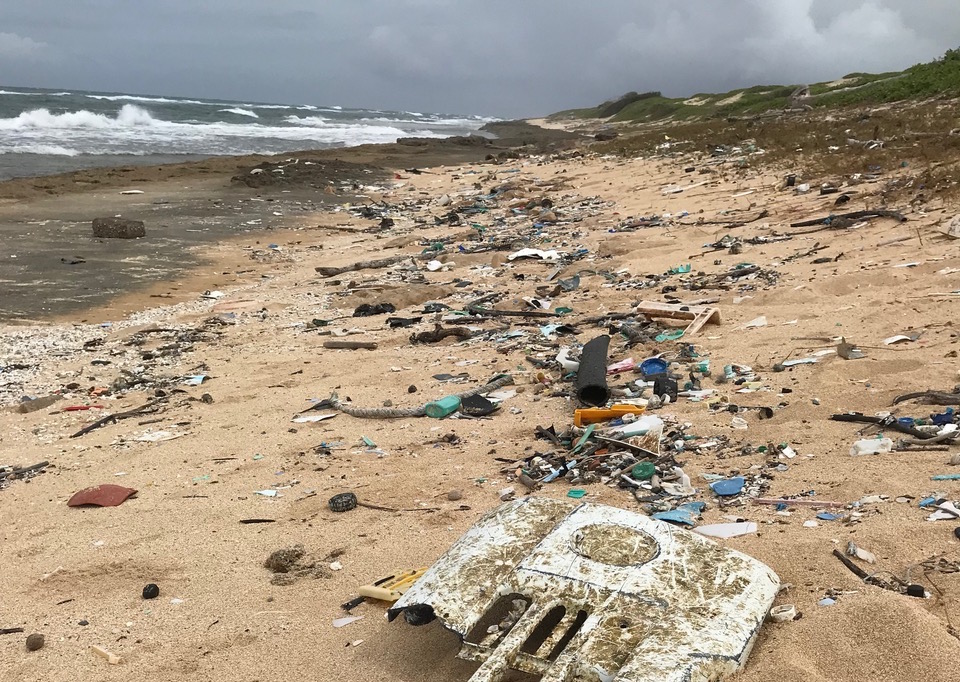
Common plastics emit harmful greenhouse gases as they degrade
A new study from the University of Hawaii at Mānoa School of Ocean and Earth Science and Technology (SOEST) has revealed that common plastics emit several greenhouse gases as they degrade in the environment.
The production rate of plastic is expected to double over the next two decades, and the degradation of plastic is already known to release a variety of chemicals that can have a negative impact on ecosystems.
The SOEST researchers have made the unexpected discovery that plastics produce methane and ethylene when exposed to sunlight. The team tested the most common plastic materials used to make food storage products, textiles, construction materials, and various plastic goods.
All of these plastics were found to produce the harmful emissions, including polycarbonate, acrylic, polypropylene, polyethylene terephthalate, polystyrene, high-density polyethylene, and low-density polyethylene (LDPE).
Polyethylene, which is used in shopping bags, is the most produced and discarded synthetic polymer across the globe. The investigation revealed that this plastic produced more of both methane and ethylene than any of the other materials tested.
The team also found that the emission rate of the gases from virgin pellets of LDPE increased over the course of 212 days, and that LDPE debris found in the ocean also emitted greenhouse gases when exposed to sunlight. Once the process had been initiated during daylight hours, the emission of these gases continued in the dark.
Study lead author Sarah-Jeanne Royer is a postdoctoral scholar in the Center for Microbial Oceanography: Research and Education (C-MORE).
“We attribute the increased emission of greenhouse gases with time from the virgin pellets to photo-degradation of the plastic, as well as the formation of a surface layer marked with fractures, micro-cracks and pits,” said Royer.
“With time, these defects increase the surface area available for further photochemical degradation and therefore contribute to an acceleration of the rate of gas production.”
According to the experts, tiny particles known as “microplastics” – which are produced in the environment as larger pieces of plastic break down – may further accelerate gas production.
“Plastic represents a source of climate-relevant trace gases that is expected to increase as more plastic is produced and accumulated in the environment,” said study senior author David Karl. “This source is not yet budgeted for when assessing global methane and ethylene cycles, and may be significant.”
Greenhouse gases have a direct influence on climate change, and inadvertently impact sea level rise, global temperatures, ecosystem health, and extreme weather events such as storms and droughts.
“Considering the amounts of plastic washing ashore on our coastlines and the amount of plastic exposed to ambient conditions, our finding provides further evidence that we need to stop plastic production at the source, especially single use plastic,” said Royer.
The study is published in the journal PLOS ONE.
—
By Chrissy Sexton, Earth.com Staff Writer
Image Credit: Sarah-Jeanne Royer













